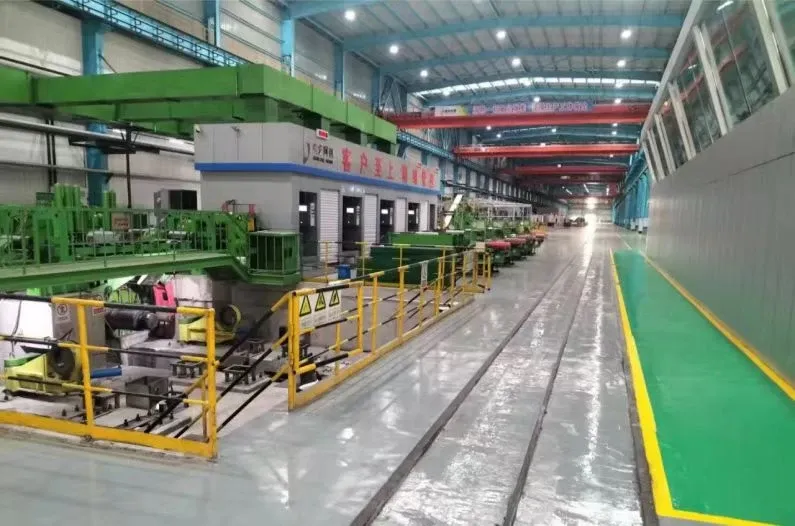
Revolutionize Metal Manufacturing with Cladding Rolling Mills
In the world of advanced metal manufacturing, cladding rolling mills and innovative processes like weld overlay cladding and strip cladding welding process are transforming the industry. These technologies enable the production of high-performance materials with enhanced properties, such as corrosion resistance, durability, and strength. In this article, we’ll explore the cladding process, the role of cladding rolling mills, and the benefits of strip cladding process for modern manufacturing.

The Role of Cladding Rolling Mills
A cladding rolling mill is a specialized machine used to bond metal layers through high-pressure rolling. This process ensures a strong, uniform bond between the base metal and the cladding material, resulting in a high-quality composite product.
Key features of cladding rolling mills include:
Precision Bonding: Ensures a consistent and durable bond between layers.
Versatility: Can handle a wide range of metals, including stainless steel, titanium, and nickel alloys.
Efficiency: Streamlines the cladding process, reducing production time and costs.
The Strip Cladding Process: Precision and Efficiency
The strip cladding process is another advanced technique used in metal manufacturing. This method involves welding a strip of cladding material onto the base metal, creating a uniform and high-quality composite.
Advantages of the strip cladding welding process include:
High Deposition Rates: Increases productivity and reduces production time.
Excellent Bonding: Ensures a strong and durable bond between layers.
Cost-Effectiveness: Minimizes material waste and operational costs.
Applications of Cladding process Technologies
Cladding technologies, including cladding rolling mills, weld overlay cladding, and strip cladding process, are used in a wide range of industries:
- Aerospace Industry
Cladding enhances the strength and corrosion resistance of aircraft components, ensuring safety and performance.
- Oil and Gas Industry
Protects equipment from harsh environments, extending its lifespan and reducing maintenance costs.
- Power Generation
Improves the durability of power plant components, such as turbines and boilers.
- Automotive Industry
Produces high-strength, lightweight materials for vehicle manufacturing.
Why Choose Cladding Rolling Mills and Processes?
Cladding technologies offer numerous benefits for modern manufacturing:
Enhanced Material Properties: Improves corrosion resistance, durability, and strength.
Cost Savings: Reduces the need for expensive alloys by applying a protective layer to cheaper base metals.
Versatility: Suitable for a wide range of applications and industries.
Sustainability: Extends the lifespan of equipment and reduces material waste.
If you’re looking to enhance your metal manufacturing capabilities, cladding rolling mills, weld overlay cladding, and strip cladding welding process are the ideal solutions. These advanced technologies deliver superior performance, efficiency, and cost savings for your business.
Visit our website to learn more about cladding technologies and how they can benefit your operations. Take the first step toward revolutionizing your manufacturing process today!
-
Indian Clients Visit YWLX to Inspect Skin-pass MillNewsJun.22,2025
-
Typical Products from Reversing Cold Rolling ProcessNewsMay.26,2025
-
Surface Finish Improvement through Skin Pass RollingNewsMay.26,2025
-
Integration of AGC Systems in Modern Cold Rolling MillsNewsMay.26,2025
-
Cold Rolling in the Context of High-Strength Steel DemandNewsMay.26,2025
-
AGC in Hot Rolling Mills: Challenges and SolutionsNewsMay.26,2025
-
Why Reversing Cold Rolling Mills Are Ideal for Specialty MetalsNewsMay.13,2025










